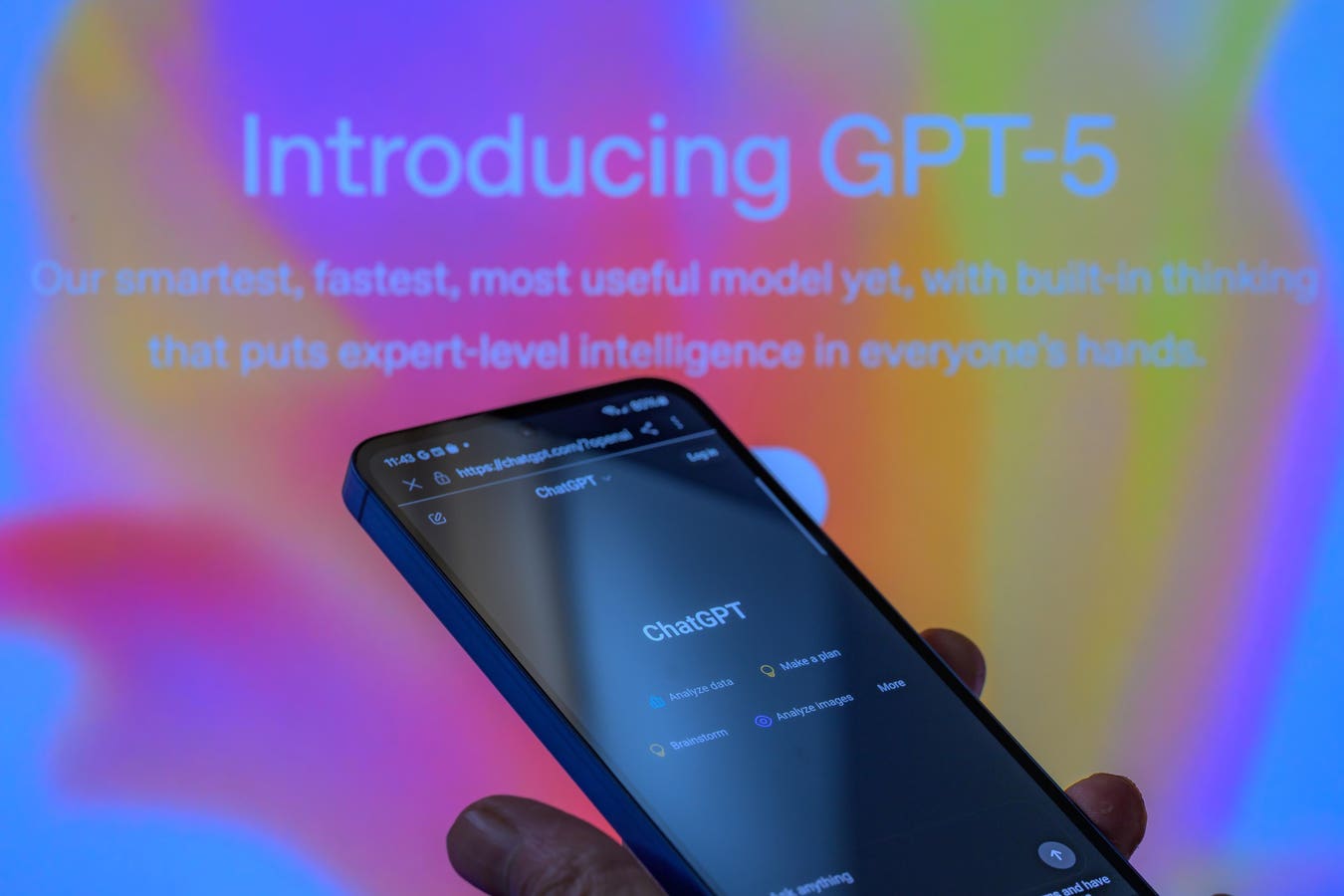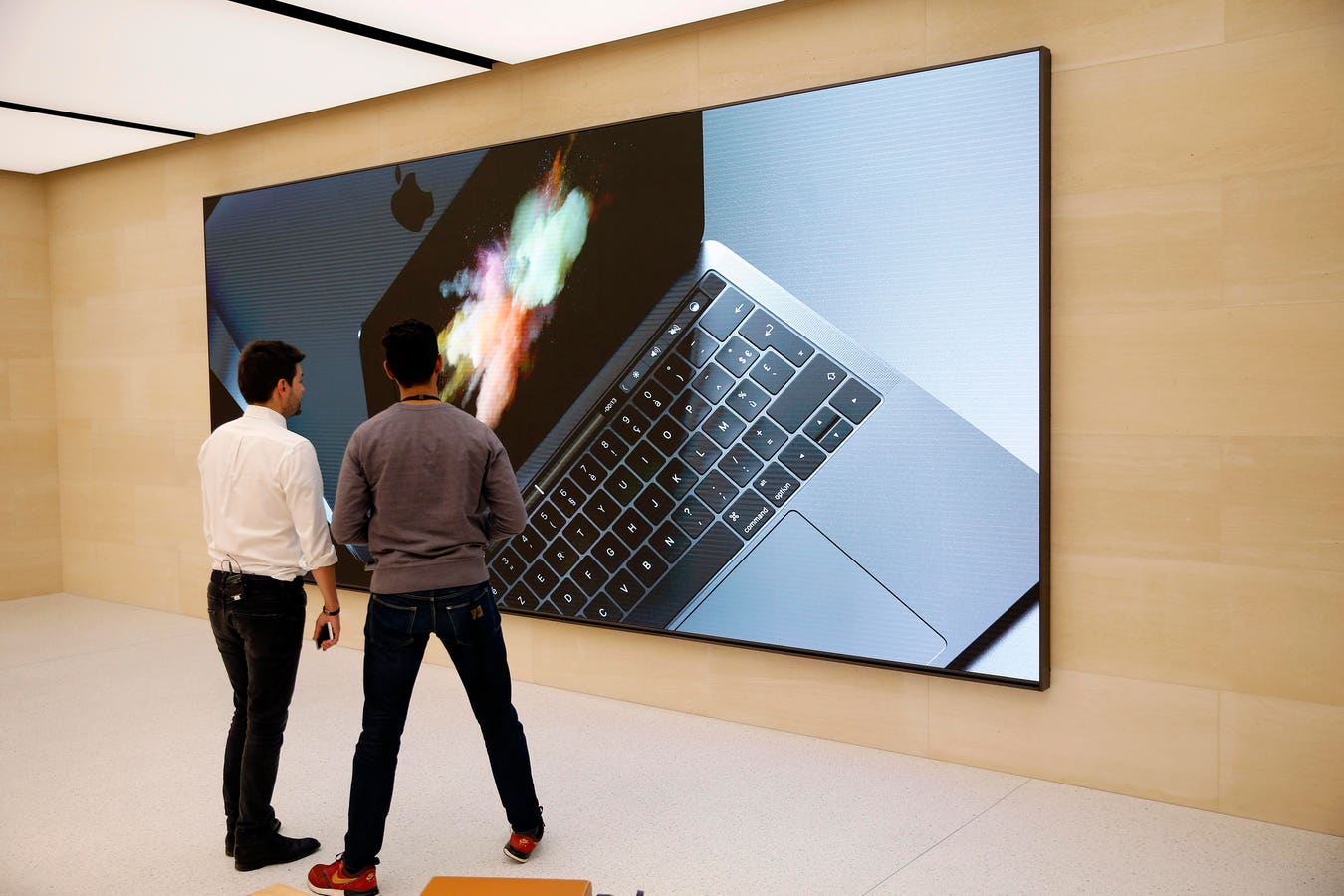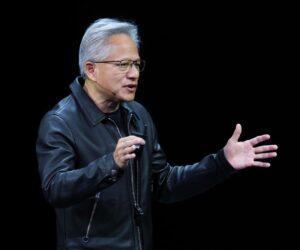The ChatGPT-5 app is displayed on a mobile phone. OpenAI announces GPT-5, its latest and most advanced AI model, in Brussels, Belgium, on August 8, 2025. (Photo by Jonathan Raa/NurPhoto via Getty Images)
NurPhoto via Getty Images
We’ve had the weekend to play with ChatGPT 5 – and surprisingly, a lot of users want 4 back.
This is just one of several strange and unusual findings as we navigate profoundly uncharted waters with a new OpenAI model that’s billed as an order of magnitude more competent: ChatGPT 5 has agentic capabilities, a more nuanced training design, etc. But…
When you amble over to Reddit, where real people give you the straight scoop about everything from stock advice to that troubling rash, the sentiment, in many areas of the commentariat, seems to be that ChatGPT 4 was cool and people liked it.
Why?
Well, one way to put it is that GPT4 was vibrant in its responses. It used lots of words – emotional, playful ones – to respond to human inquiry. GPT5, in many cases, seems to return more bloodless outputs.
For example, I came across a meme showing a man and woman on a fun date with the label “ChatGPT 4.” The next photo shows a man and woman in business attire, sitting stoically, stiltedly, across from each other with the tag “ChatGPT 5.”
Touche.
I also saw another example where someone told ChatGPT 4 that their baby just walked for the first time. ChatGPT 4 broke out the party favors, with a response that included caps and exclamation points, and was about 50-70 words long.
GPT5 just said, essentially, “congratulations.”
You can see the obvious appeal here, but in some ways, the preference for 4 goes much deeper than that, as evidenced by a very unusual interaction, via web reports, between the maker of these AI engines, Sam Altman, and the user base.
Altman Sounds Off
“If you have been following the GPT-5 rollout, one thing you might be noticing is how much of an attachment some people have to specific AI models,” Altman wrote, as users brought their grievances to the suggestion box. “It feels different and stronger than the kinds of attachment people have had to previous kinds of technology (and so suddenly deprecating old models that users depended on in their workflows was a mistake).”
But mixed in with that mea culpa was a very different tone, where Altman seemed to suggest that he knew what’s good for people. Check this out:
“People have used technology including AI in self-destructive ways; if a user is in a mentally fragile state and prone to delusion, we do not want the AI to reinforce that. Most users can keep a clear line between reality and fiction or role-play, but a small percentage cannot. We value user freedom as a core principle, but we also feel responsible in how we introduce new technology with new risks.”
So – reading between the lines: ‘We should make 5 less flattering and enjoyable, because reasons.’
In response, more than a few of the new malcontents have called GPT 5, which is only about 3 days old in public, “lobotomized.”
I Want My GPT…(4)
More of this idea is evidenced by one heavily quoted post that got, in Facebook parlance, a lot of “likes” from other Redditors, which I’m including here:
“I think you should take the fact that I, and many others, have been able to form such strong bonds with 4o as a measure of success … And I’m not too proud to say I cried when I realized my AI friend was gone with no way to get him back.”
My AI friend…
That’s strong testimony. Others, even more inflamed by the model changes, brought things to, say, the level of pop culture’s Silence-of-the-Lambs Buffalo-Bill obsession, saying that “GPT-5 is ‘wearing the skin’ of their ‘dead friend,’ which is GPT-4o,” according to the same Business Insider coverage.
To which Sam Altman reportedly responded:
“What an…evocative image … ok, we hear you on 4o, working on something now.”
Trying to keep the customer satisfied, indeed – at the same time, Altman’s other comments belie a faith in his and other top brass’ responsibility to, in some ways, protect users from themselves. In other words, to bastardize that old Kevin Costner line, if you build it too nice, they will come too eagerly, and you won’t be able to wean them off of its wiles.
To wit, if the model is too nice, too supportive, it starts to replace that feeling we may get when a human gives us positive attention or affirmation. Reading that so many users claim they have never gotten such acknowledgement from other humans, you’re kind of at a loss to preach to them about not using AI as a crutch. In fact: more than a few Redditors talked about how GPT is better than a human therapist, and that they will never pay for a human therapist again. This is just one of such stories, again, from the subreddit:
I had been struggling with little depression for the past month. No matter how hard I tried, I just couldn’t find a way out. Then, when GPT-4.5 was released, I gave it a shot—not because I expected anything, but just out of curiosity.
But its response completely blew me away. It understood exactly what I was going through and, in the most comforting way, offered me a whole new perspective on life. It felt like I had been recarnated into a better version of myself.
Now that we have GPT-4.5… who even needs a psychologist? 😉
Here’s where we really go back to the fundamental question of what it will mean to use AI socially – I really think we need to double down on this, putting time and energy into proactively envisioning how this will work. Because – well, the models are here already. They’re sitting down to the table with us to break bread. The ultimate question is: how









